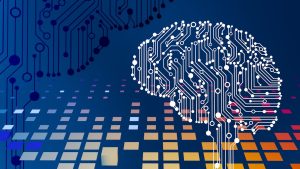As of July 2025, artificial intelligence is revolutionizing education, offering personalized learning and efficiency gains, but it also introduces profound ethical challenges. A recent World Economic Forum report highlights seven principles for responsible AI in schools, emphasizing fairness, data privacy, and teacher well-being amid growing concerns. Case studies reveal AI’s dual nature: enhancing outcomes while risking privacy breaches, bias, and inequality. This article examines key dilemmas through real-world examples and provides guidelines to navigate them responsibly. At resistai.xyz, we explore these issues to promote human-centered tech in education.
The Rise of AI in Education and Its Ethical Shadows
AI tools like adaptive learning platforms and grading systems promise to democratize education, tailoring content to individual needs and freeing teachers for deeper engagement. However, ethical pitfalls abound. Privacy vulnerabilities expose student data, algorithmic biases perpetuate inequities, and over-reliance on AI could erode critical thinking or displace educators. These concerns aren’t abstract—global reports show increasing scrutiny, with UNESCO urging robust protections to ensure AI serves all learners equitably.

Key Ethical Dilemmas with Case Studies
The Ethical dilemmas of AI in education raise dilemmas on bias, privacy, job displacement, and more. Below, we delve into examples illustrating these risks.
Bias in AI Grading and Assessment
Bias occurs when AI systems reflect skewed training data, leading to unfair outcomes. In U.S. universities, AI essay graders have disadvantaged non-native English speakers, misclassifying their work as AI-generated or scoring lower due to linguistic differences. A 2023 study found detectors falsely flagged over half of non-native writings, raising fairness issues in diverse classrooms.
In higher education, similar biases in automated assessments have widened achievement gaps, prompting calls for diverse datasets. Mitigation involves human oversight and regular audits to recalibrate models.
Privacy Breaches and Data Security
Student data is a goldmine for AI, but leaks pose severe risks. In China, AI tutoring apps suffered major breaches in 2024, exposing millions of users’ information and highlighting vulnerabilities in personalized learning tools. This incident fueled debates on data ethics, with affected families facing identity theft threats.
South African primary schools using AI for lesson personalization encountered similar issues: While improving engagement, tools revealed data vulnerabilities, potentially violating child privacy laws. Strategies include adopting strict encryption and consent protocols.
Job Displacement for Educators
AI’s automation threatens teaching roles, especially in resource-strapped areas. In India, AI tutors have led to unemployment spikes among traditional educators by 2025, with platforms replacing human instructors in rural settings. This shift exacerbates economic divides, as displaced teachers struggle without retraining.
Global trends show AI handling routine tasks, but at the cost of human mentorship. Solutions focus on upskilling, like integrating AI literacy into teacher programs to create hybrid roles.
Additional Dilemmas: Academic Integrity and Access Inequality
Generative AI raises cheating concerns, with tools like ChatGPT enabling plagiarism. A systematic review notes teachers’ fears over undetected misuse, eroding trust. Access gaps widen too: Wealthier schools adopt AI faster, leaving underfunded ones behind and deepening educational inequities.
Guidelines for Ethical AI in Education
To address these, follow established frameworks:
- Promote Fairness and Inclusivity: Use diverse data and bias-detection tools. WEF’s principles stress equitable access for all students.
- Ensure Data Privacy: Implement UNESCO standards, including robust protection and transparent handling. Require parental consent and regular security audits.
- Support Teacher Well-Being: Integrate AI as a collaborator, not replacer. ISTE resources offer retraining to empower educators.
- Foster Transparency and Accountability: Make AI decisions explainable and involve stakeholders in oversight.
- Encourage Ongoing Evaluation: Test for ethical impacts pre-deployment and monitor post-launch, adapting to feedback.
Organizations like EDUCAUSE advocate balancing innovation with ethics, urging policies that prioritize human values.
Conclusion: Toward Responsible AI in Learning
AI holds immense potential for education, but unchecked dilemmas could undermine its benefits. By learning from case studies and adhering to guidelines, we can build systems that uplift rather than divide. Join the conversation at resistai.xyz to resist unethical AI and champion human-centered education.
Sources
- World Economic Forum: AI Education Ethics (weforum.org/agenda/2024/01/ai-education-ethics/)
- DigitalDefynd: AI in Education Case Studies (digitaldefynd.com/blog/ai-in-education-case-studies/)
- ScienceDirect: GPT Detectors Biased Against Non-Native English Speakers (sciencedirect.com/science/article/pii/S2666389923001307)
- UNESCO: Ethics of Artificial Intelligence (unesco.org/en/artificial-intelligence/ethics)
- ISTE: AI in Education Resources (iste.org/areas-of-focus/ai-in-education)
- Frontiers in Education: Ethical and Regulatory Challenges of Generative AI (frontiersin.org/journals/education/articles/10.3389/feduc.2025.1565938/full)
- EDUCAUSE: Striking a Balance in AI Ethics (er.educause.edu/articles/2024/12/striking-a-balance-navigating-the-ethical-dilemmas-of-ai-in-higher-education)
- Stanford HAI: AI and Education in 2025 (acceleratelearning.stanford.edu/story/the-future-is-already-here-ai-and-education-in-2025/)
- Taylor & Francis: Ethics of AI in K-12 Education Review (tandfonline.com/doi/full/10.1080/1475939X.2024.2428601)
- Springer: Ethical Challenges in AI for Education (link.springer.com/article/10.1007/s10805-025-09660-w)
